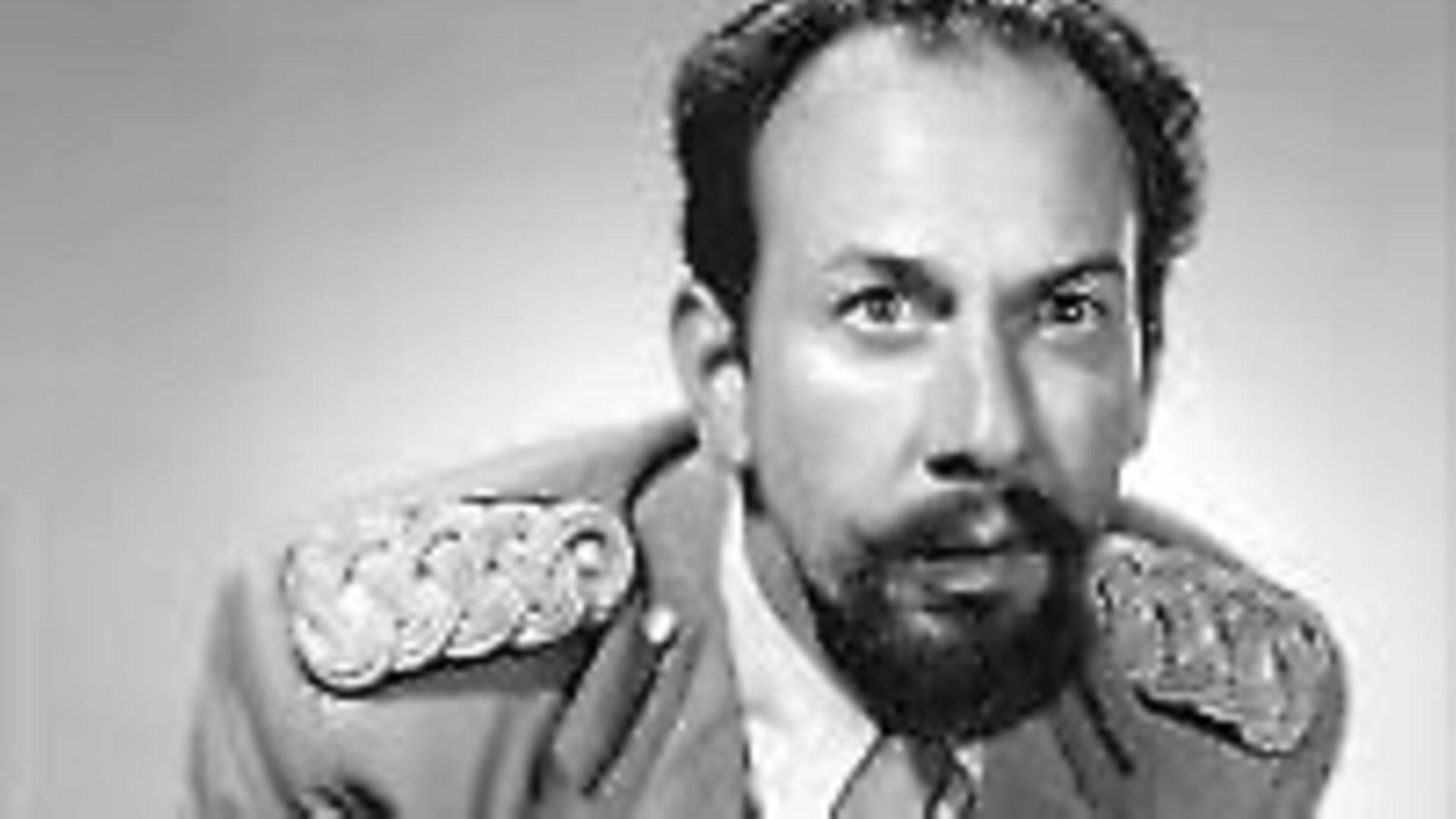
TIM WALKER on how José Ferrer found out the hard way that careers can end so abruptly.
Stardom is not of course a lifestyle choice, but a phase that can sometimes be cruelly and inexplicably fleeting. José Ferrer could vouch for that. The Puerto Rican actor made it big in classic films such as I Accuse!, Moulin Rouge and Cyrano de Bergerac – for which he won an Oscar – but then, just as he was becoming accustomed to the fame and fortune, his agent told him the game was up. ‘I’m sorry José, but I just can’t get any parts for you,’ he’d said. ‘You’re just not hot any more.’
I caught up with Ferrer in the summer of 1990 when he was about to appear in a play at the Chichester Festival Theatre called Born Again. He was then 76 and a world-weary, lugubrious soul. He looked back on his life with bemused detachment. ‘Let’s not beat about the bush,’ he said, as I began to delicately inquire about what happened. ‘The truth about José Ferrer is that he made a few good films in the 1950s and then his career went into freefall.’
True, there had been some flashes of the old genius in more recent years – the sweaty Turkish bey who tried to seduce Peter O’Toole in Lawrence of Arabia and the wily immigration chief in Voyage of the Damned – but there had also been a lot of embarrassing tosh, such as The Swarm and Dracula’s Dog.
‘I’d thought that I had a god-given right to a glittering career. It started off so very well and so effortlessly. I was shocked when it ended so abruptly. I couldn’t understand what I’d done wrong and I still can’t.’
Some people had suggested his name might have been too ‘foreign-sounding’ for American audiences, but, then, as he pointed out, if that had been the case, he’d never have made it big in the first place. He could occasionally lose his temper on film sets – ‘I only got angry if people weren’t behaving professionally,’ he said – and others had wondered if maybe he’d been badly advised about his career choices, but actually it was hit after hit until suddenly nothing.
‘I think it had less to do with any of that than the fact I was just too honest and probably still am. I think if I’d been more inclined to say what was politic, rather than what was on my mind, I’d be a wealthier and more successful man today. Certainly, it isn’t ever a good idea if you’re an actor to tell a journalist how your career is really going.’
Ferrer’s confidence had inevitably taken an almighty knock. A possible manifestation of this was a nervous cough, which punctuated virtually every sentence he uttered and sometimes it took him a while to get it under control. It explained why the theatre’s publicist had insisted on allocating two hours for the interview, rather than the customary one. When, after a prolonged attack, he apologised, I mentioned that I’d never been aware of his cough in his stage and film performances. ‘It’s funny, really, but I have a much greater degree of confidence when I’m standing before cameras or a live audience. I guess it’s because I can shield myself behind a character.’
I asked him how he was getting on with Peter Hall, who was directing him in his play. ‘There have been no tantrums, either from me or from him. I need hardly add we’ve both reached an age when that sort of thing isn’t terribly becoming.’
On his fifth and final marriage when I met him and residing mostly in a suburb of Miami, Ferrer said one of the few good things to be said for no longer being a star is that people seldom troubled him for his autograph, which, in his day, he found very irritating. ‘I’d be in a hurry to get somewhere and suddenly I’d find myself having to sign endless bits of paper which I knew would end up soon enough in the dustbin.
‘People in the States live forever in the present – if you had a film that came out even a year ago they’ve already have forgotten about it and you – whereas on this side of the Atlantic there still seems to be a bit of an appetite for the old classics. Still, if anyone ever does remember me, I never quite know what to say – and nor do they. One or two have even blurted out that they thought I’d died.’









